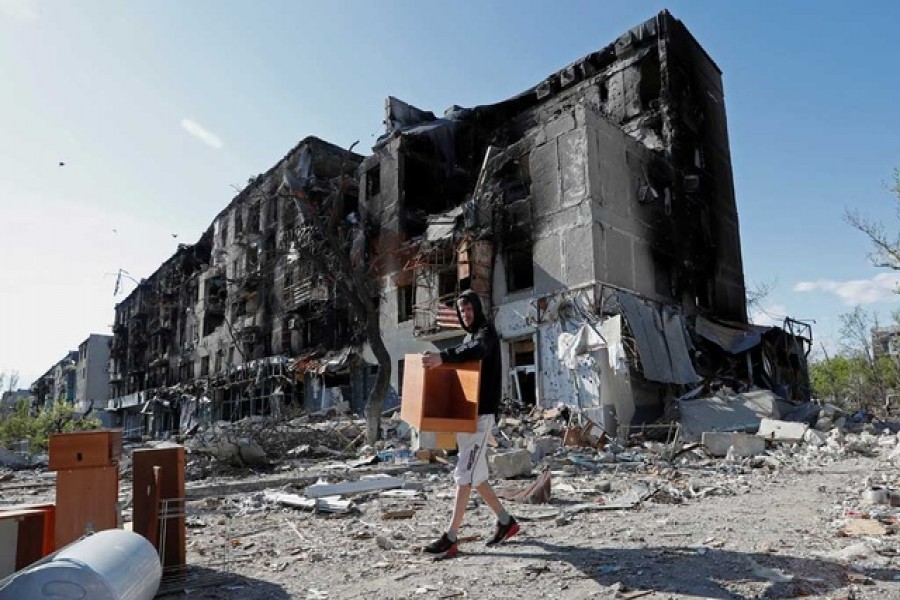As was his wont, Donald Trump didn't mince words in his statements. They often caused world leaders to wriggle uncomfortably in their seats whether it be the United Kingdom, India or the European Union. Even the measured Angela Merkel was reduced to almost whispered disparagement when he stated his intent to not fund NATO unless the European members paid up what they had committed to. He not only got across his point but also achieved his objective. Mr Trump was as adamant and successful in threatening to cut off funds for the United Nations unless the organisation got its act in order and streamlined operations and shed unnecessary fat. UK Prime Minister Boris Johnson was a personal favourite of the maverick President. That didn't stop the then-US President from stating that the country would have to take its position in the line for preferential trade with the United States post Brexit. It wasn't the only rebuff the UK had to take on the chin with India veering away from any solid deal barring a few specific purchases.
Prior to his winning elections in 2016 Mr. Trump made a pertinent point in questioning the wisdom of announcing specific dates and details of a military operation against Islamic State by the US. Some seven years later it would appear that many still haven't learnt any lessons about the element of surprise. That includes Mr Trump who just before leaving office agreed on a full withdrawal of US troops from Afghanistan, with stated dates. The inevitable outcome went as expected, if not worse. A former Afghan Army General has now gone public about a new insurgent movement to be launched against the Taliban government. He followed it up with an interview with BBC. What the intention is has not been explained. Such a movement would surely be military in nature and have to be encouraged and funded. The professed backers, rich Afghan expatriates don't exude confidence because this venture can hardly be short term. The perpetrators would have to enter the country crossing borders, pointing fingers essentially at Pakistan and Iran. Of more importance is the fact that such operations would require funding. The two bordering countries aren't in a state of any financial comfort for such luxuries.
There are allegations that the US has mined out some of the precious minerals Afghanistan is blessed with. The Taliban is finding governance difficult in absence of access to its own reserves, frozen in the US and the reluctance of institutional and other countries to allocate funds in the absence of clear cut plans on women education and inclusiveness. For now, whatever the religious dictates suggest, Afghanistan continues to subtly allow poppy cultivation, that is the source for the international drug trade. They have silently welcomed unfreezing of part of their reserves by Mr. Biden, to tackle humanitarian crisis in food, fuel and shelter for the Afghans. Should such military intervention resume, the Taliban will need money for arms and the gleeful traders will find funds to be tapped in. It might have been set aside for a while but the reality suggests further bankruptcy extending beyond Pakistan on one side, the Maldives on another side and Sri Lanka on the other. Pakistan's new government will follow the path re-decided by Imran Khan of wooing the IMF for a $4 billion bailout, ostensibly against stiff dictates. Such bankruptcy suggests much more in terms of regime changes. Sri Lanka has a similar if not worse dilemma. Unable to pay back $51 billion in debts, having had to lease out a port to China for debt default, the country is broke. A hastily put together 'national' government has announced tax increases as an unfortunate inevitability. However unpopular, this is one of the key components of any possible bail outs by international financiers. For decades the cat and mouse game has been played with Bangladesh, with subsidies being the bone of contention. A determined resoluteness prevailed to tone down sharkish loans and look elsewhere. The prudence was followed through by governments and maintained by the Awami League in their thirteen continuous years in power. It may not be out of context to recall that Pakistan, Sri Lanka, Afghanistan and the Maldives are SAARC member states, the organisation that is all but dead. Responsibility lies squarely on India and Pakistan, their belligerence towards each other scuppering a promising entente.
Much has been made of the Chinese debt trap. Pakistan, a traditional ally has been rebuffed of late by Beijing for not coughing up loan repayment. As is obvious from the fallout of the Russian adventure in Ukraine, China will be the biggest beneficiary. The economies of Europe were in trouble before the conflict. The issue with energy will exacerbate matters. Germany has already given in with one company stating upfront they would pay Russia in Roubles as demanded. Poland and Bulgaria have pouted at the idea resulting in a halt of gas supply to them. They're putting on a brave face for now. How long that 'now' will continue is strongly debatable.
Of more concern is the massive funds in the form of aid being sent to Ukraine. The US has now cobbled together $33 billion in addition to nearly $2 billion in bits and stops earlier. Germany is footing a $300 million package. They're followed by the UK. This money won't come free of cost. Nor will Ukraine's demand of recuperating $4 billion losses per day. During the Second World War, Britain mortgaged its overseas colonies in return for US armaments. Repayments continued for more than a quarter of a century. How Ukraine will do so is a rising question. That is, provided the country exists by the time Russia is finished with them. Whether they can even after that suggests debt traps are all-engulfing and the new form of hegemony.


